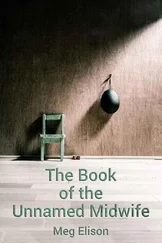From time to time he’d want out of the office as out of a catacomb, just so he could breathe fresh air and feel the sunlight on his face. How long would this reprieve last? He lived in constant fear of a recurrence, as if he were an immigrant living in the country of his dreams whose fickle authorities could nevertheless decide without warning to take him into custody, nullify his freedom and dispatch him to sorrow and dust.
On one such outing, he encountered an eclectic group of people stretching around the corner of a gray concrete building, as ornate and generic as a reconstituted bank. They were assembled single file and waiting to enter for a mysterious purpose that made passersby look twice, wondering what they might be missing. He’d seen such lines before but had never cared. Now he slid between two car bumpers, crossed the street and approached the last man in line, and, like a tourist new to the phenomenon of anonymous city gatherings, asked him what was what.
“Casting call.”
“For what?”
“Movie.”
Move on if you don’t know , the man’s curt reply seemed to say. We don’t need the extra competition.
But he stayed put just for the thrill of it, doubtful he’d last so long as to actually enter the building and find himself in front of a casting agent, but feeling nothing else pressing. Or trying his best not to, anyway. There was some busywork waiting for him back at the office, but nothing exciting. Soon a small gathering had accumulated behind him. He felt the interloper. Never took an acting class in his life. Never sat for a headshot or waited tables for crap pay or suffered the heartbreak of losing a part on the final audition. So this was the subculture, so often talked about but so often scattered, invisible as bedbugs, of the struggling actor. With the rest of the artists, together with the immigrants, they carried the city on their backs. Eating like hell and suffering miserable colds, serving your ahi tuna, reciting Shakespeare in the shower. Directly behind him stood two girls: one Latina with hoop earrings and curls stiff and frozen and black as tar, and the other dressed, improbably — although nothing was improbable here, if you just looked around — as a princess, a jean jacket thrown over a strapless white gown of silk and organdy that flared widely at the skirt, a silver spangled tiara in her hair. Must be auditioning for princesses, he thought.
The Latina said to the princess, “Why he think he can do me like that? I been good to him, girl! And then he treat me like some ho, like I don’t even go to church and shit.”
“Have Manny whoop his ass,” said the princess.
“What I’m gonna say to Manny gonna make him whoop his boy’s ass like that?”
“That he been saying shit.”
First the acting subculture, then the subculture of women who did not get the respect they deserved from men whose asses should be whooped by Manny. He strained to recall a single exchange — on the street, from the next table over at a restaurant — overheard in all the years he had lived in the city, within the inescapable nexus of babble he had sat in most of his life, and not one came to mind. Not one. Had he never unplugged his ears of the self-involvement that consumed him about work, when he wasn’t sick, or about sickness, when he couldn’t work? Had he never listened?
Later that day he overheard another conversation after ordering food from the Kebab King. The Kebab King was a white portable plastic hut parked down one of the numbered streets in the Forties. Laminated articles stuck to the side of the cart proclaimed the Kebab King the leader of street-vendor cuisine. The menu consisted of three items — lamb, chicken and falafel — spelled out on the front of the hut. He asked for a lamb kebab and gave his money to a small woman wearing a white double-breasted chef’s jacket and a pair of latex gloves. The Kebab Queen, maybe. The Kebab King was in a similar jacket and had his back to her as he tended to diced meat on the sizzling grill.
Tim waited for his order with great anticipation. He was much hungrier than he thought, and this was something he had wanted a long time. There were entire walks whose source of bitterness was not the pain, nor the mystery, nor the ruination, but the simple fact of passing a vendor’s cart as it issued the agonizing aroma of unattainable meat. Walking hungry with no way of stopping played tricks on the mind, as those who die in deserts know when they mistake sand for water. He had fixed for hours on images of charred shanks turning on a spit over a flickering fire and of tearing hocks of roasted meat directly from the bone, blisters of blood sizzling on the surface of the skin. There was nothing civilized about him then. Just the instinct, primordial and naked, for food and fire.
The woman handed him the tightly foiled sandwich with a ration of napkins, and he realized he had no patience for taking it back to the office. He stood against a brick wall and, out of the way of foot traffic, tore away the foil at one end. The sandwich was hot as ore in his hand. His first bite of meat and juice and yogurt sauce and onions and diced pickles nearly made the deprivation of such a thing worth it. The sandy pita was a full-bodied pleasure. He took large bites that forced him to chew dramatically. He was eating the steam itself.
He ordered a second kebab and walked over to the courtyard on the avenue side of the street. There he sat on a smooth roseate ledge that sloped gently toward the sidewalk and watched the other lunchgoers who sat eating around a decommissioned fountain among the tall buildings. As he ate he overheard two men talking. He had passed them on his way to sitting down. They were just on the other side of the ledge from him, reclining against the wall. They were homeless, or lived in a shelter or in the tunnels, and they each had a bottle in a bag within arm’s reach. One of them owned a wheelbarrow, which had been pushed sideways against the wall, out of the way. It was rounded over with clothes and plastic bags, partially bungeed with a blue tarp. Tim stopped chewing to listen. They were speaking English, but he could not understand what they were saying. He got only the tone of complaint. He understood that the speaker had been wronged in some way, and that the injustice was more than just a minor slight. But as for the words themselves…
“They corset cheese to blanket trinket for the whole nine. Bungle commons lack the motherfucker to razz Mahoney. Talk, knickers! Almost osmosis for the whole nine. Make snow, eye gone ain’t four daze Don.”
“Uh-huh,” said the second man.
“And sheer traps ton elevate the chord dim. Eyes roaring make a leap sight socket.”
“Uh-huh.”
“Sheeeeee-it,” said the first man.
Then they fell into silence.
On the day he set the motion on Mike Kronish’s desk, he found himself in Bryant Park at lunchtime. He walked up to a kiosk where he purchased a turkey wrap and then made his way toward one of the green tables laid out in the shade. Under his feet, he sensed the final crunch of fallen leaves. He was mistaken — it was the opposite season for turning leaves — but he was too preoccupied to notice. He had but one thing on his mind: had Kronish seen the motion, and if so, what did he think?
He sat down, brushing off the table a languid-moving bee, and unsealed the sandwich from its plastic-wrap cocoon. He kept his eye on the BlackBerry. The day had acquired an edge of cold, but there were still plenty of people about, as if defiance could force spring to act appropriately. He paid no attention to their conversations. From the first bite of his sandwich to the last, he ate mechanically and without pleasure. The ache in his jaw told him he had finished. The duty of lunch had been acquitted. Shortly after, as if his stare at the mute BlackBerry all at once exerted an actual force in the world, Mike Kronish called. He recognized the number lit up on-screen and his heart began to flutter. His heart had done the same nearly twenty-five years earlier when, as a junior associate, a call from a senior partner, no matter how insignificant, was a mortal quest to prove one’s competence. He answered reluctantly in a voice he did not recognize. “Hello?”
Читать дальше












